Easy guitar theory: Chord structures
Learn how to build some of the most commonly used chords with 5 different chord structures and accompanying arpeggio patterns
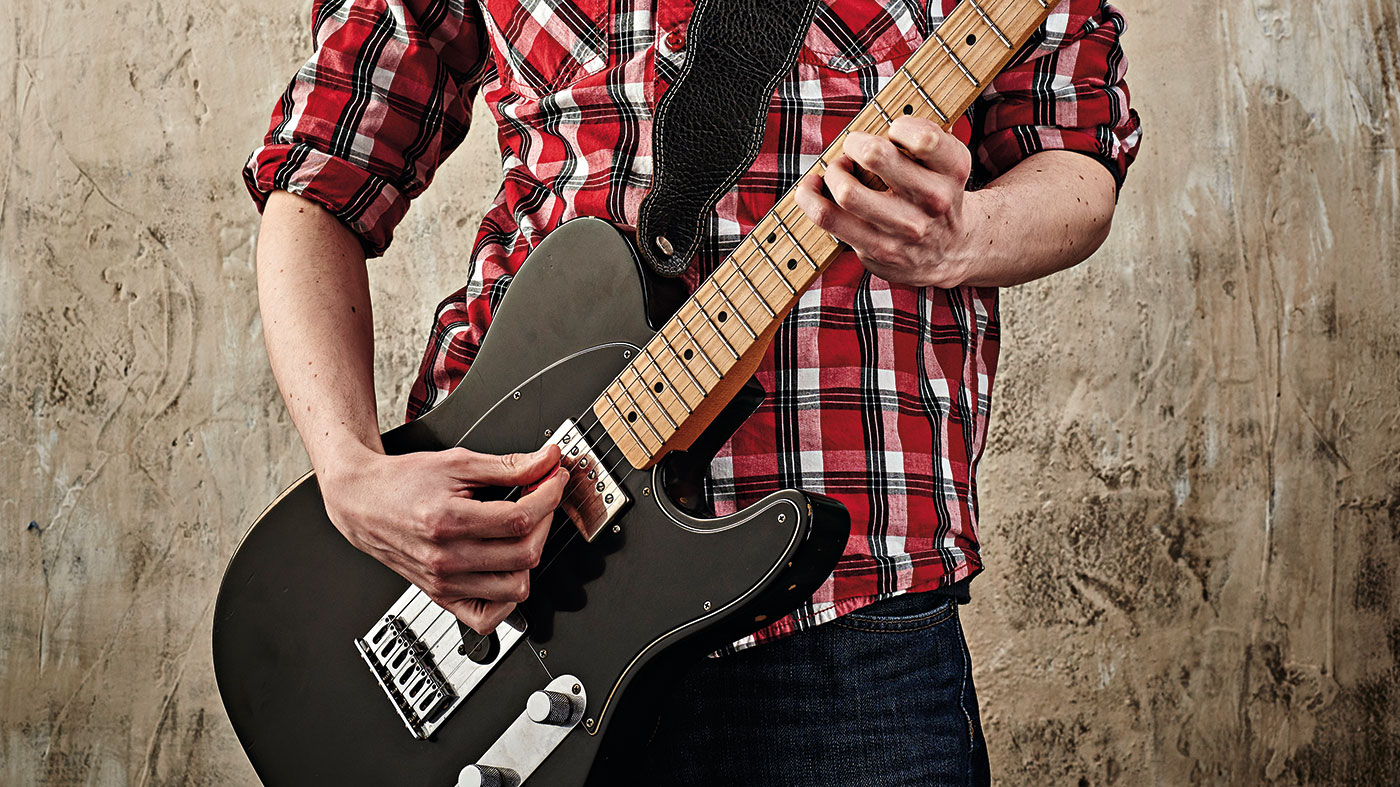
One thing many guitarists struggle with is how chords are constructed and what their names mean, so we’ll try and explain it here for you.
It can be dry at times but it’s worth persevering. Remember, once you understand the basics, you can apply it to any key – that’s a boatload of chords for you!
Our lesson’s based in C but it’s fairly easy to play in another key. You just need to know how the major scale is constructed, and that’s where we’ll begin…
1. C major scale and C major
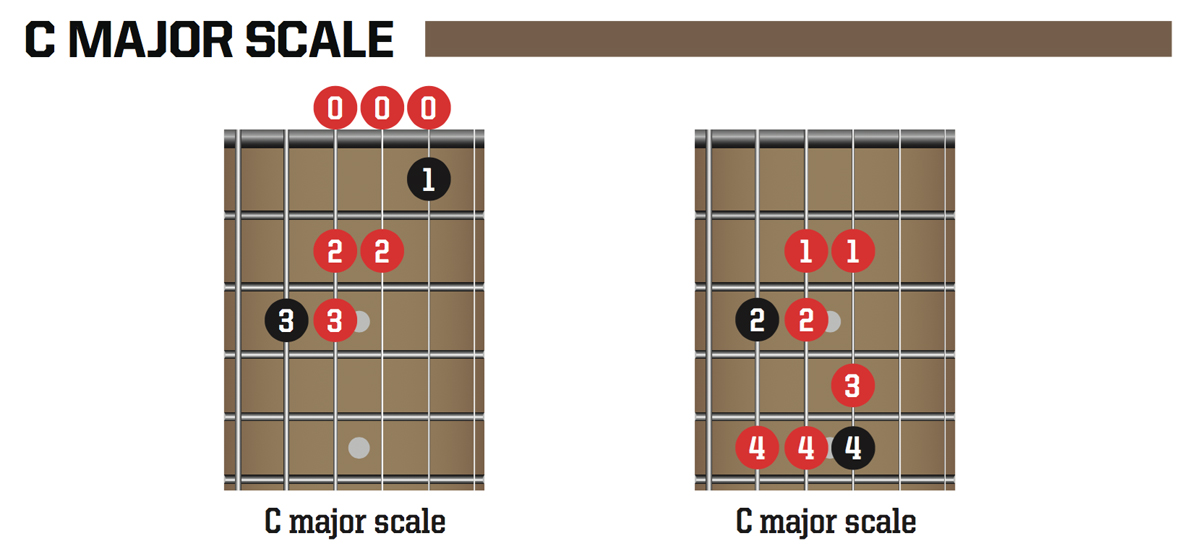
Try playing these two shapes of the C major scale. The idea is to learn to move the shapes around the fretboard. For example, if you move either shape two frets higher you’ll be starting on a D note – so you’d be playing the D major scale. Another two frets higher and it’d be E major.
2. C major
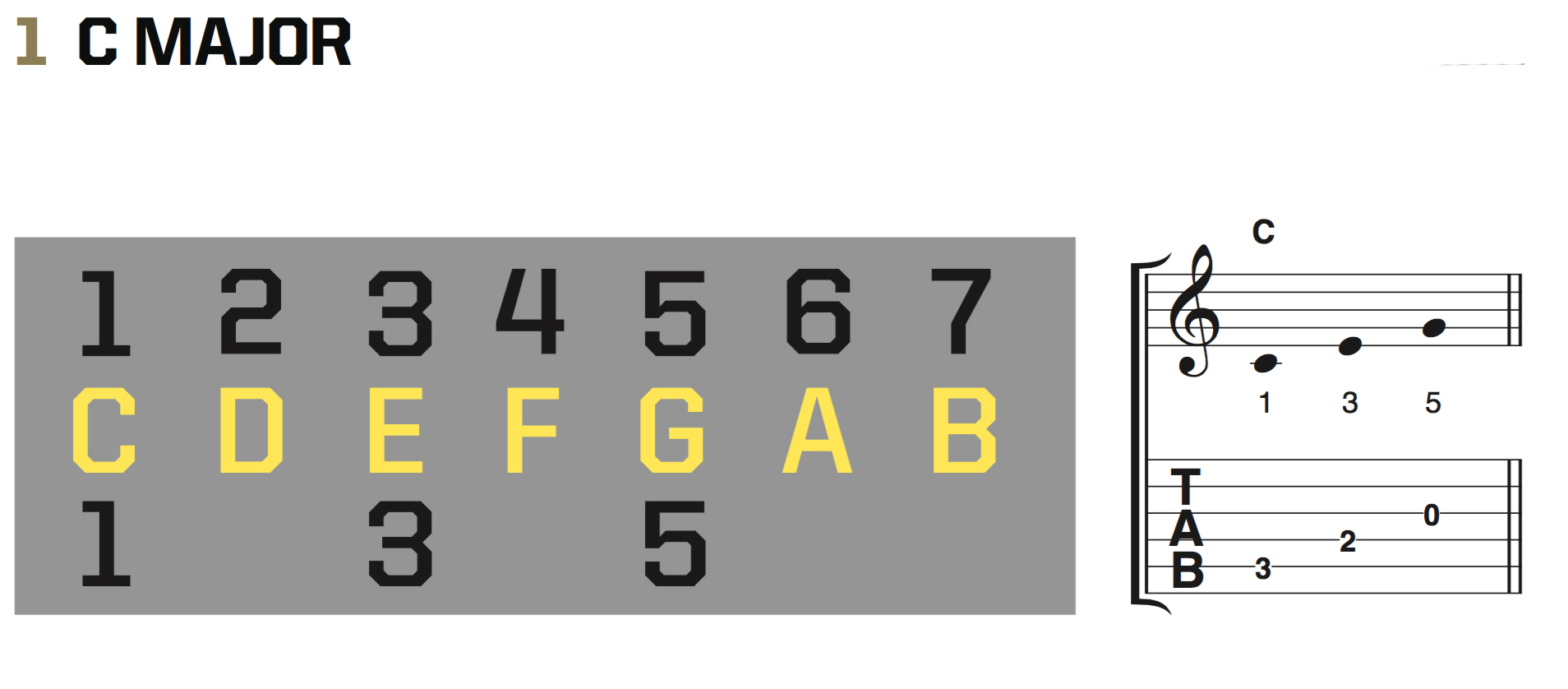
You’ve played the C major scale, now here are the notes. Major chords are made up of the first, third and fifth notes of their major scales; in C that’s C, E and G – which you can see played as and arpeggio in the tab.
2. C major 7
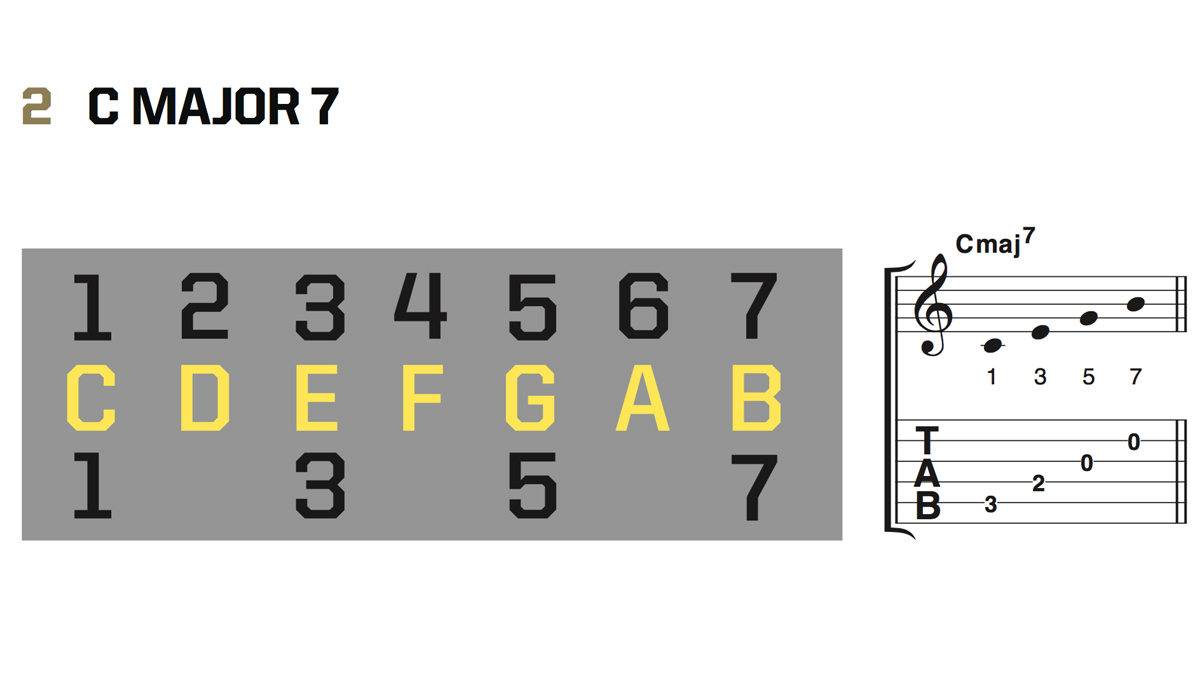
To play a Cmaj7 chord we simply add the seventh note of the scale (B) to a C chord (C E G). Different key signatures have different notes, but the formula is always the same.
3. C7
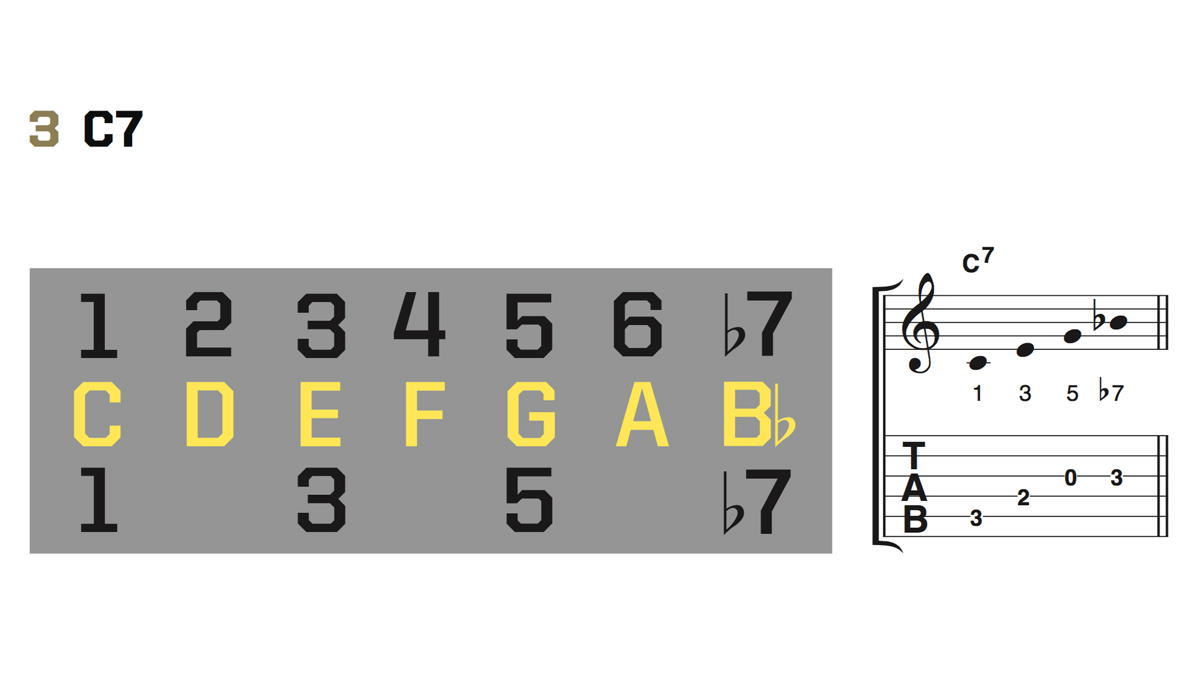
C7 is just like Cmaj7 except that the seventh note is lowered by a semitone to B♭. This is known as a flat 7th (written♭7th or ♭7).
Want all the hottest music and gear news, reviews, deals, features and more, direct to your inbox? Sign up here.
4. C minor
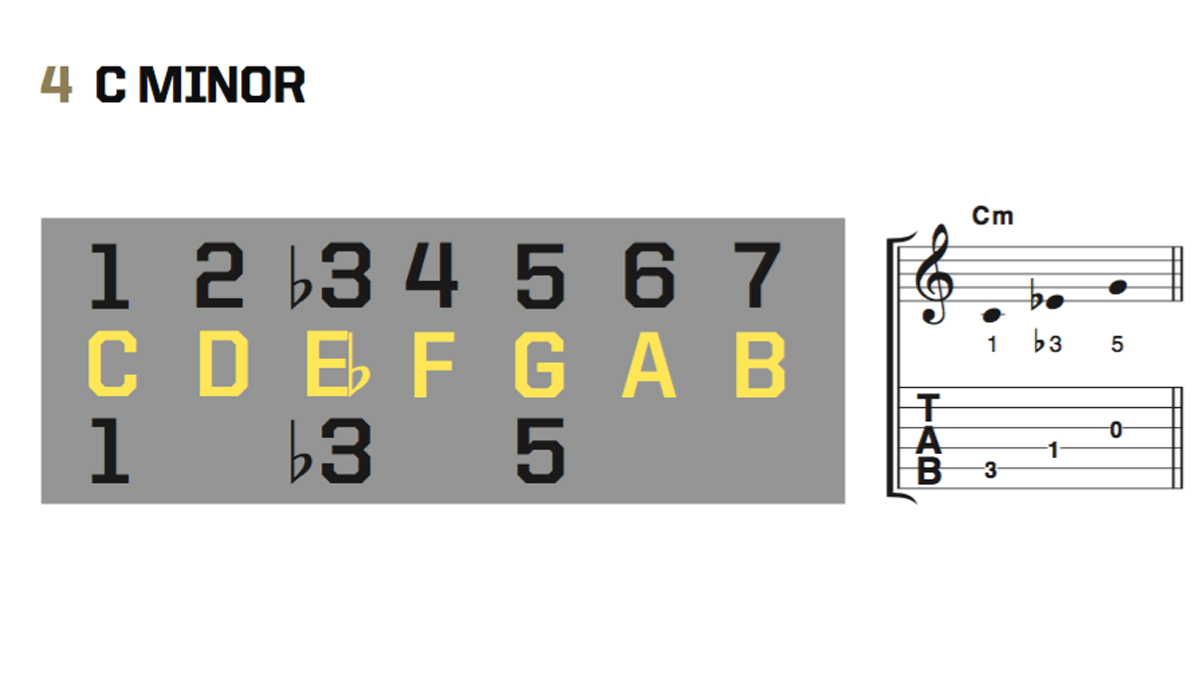
C minor is like C major but with a ♭3rd. Guitarists often duplicate notes in the chords we play because we’ve got so many strings to cover – and three notes might sound a bit thin at times!
5. C minor 7
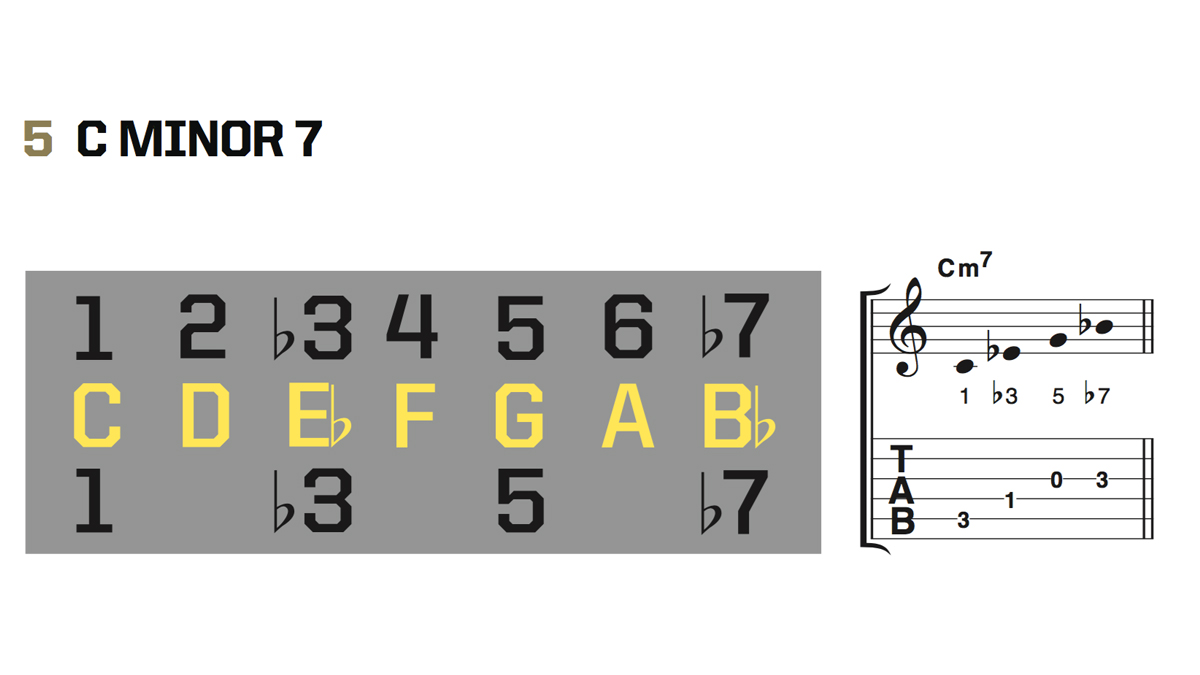
Finally, Cm7 takes a Cm chord and adds a ♭7th. Any arrangement of the notes is fine, as long as you play the right ones! For example you could play C-G-B♭-E♭-G and it’d still be Cm7.
Chris has been the Editor of Total Guitar magazine since 2020. Prior to that, he was at the helm of Total Guitar's world-class tab and tuition section for 12 years. He's a former guitar teacher with 35 years playing experience and he holds a degree in Philosophy & Popular Music. Chris has interviewed Brian May three times, Jimmy Page once, and Mark Knopfler zero times – something he desperately hopes to rectify as soon as possible.
